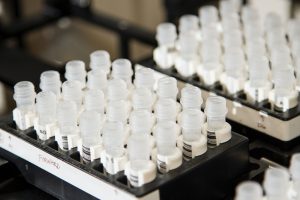In a significant strategic move, Johnson & Johnson (J&J) is reportedly scaling down its efforts in infectious disease research and development (R&D), a decision that follows the merger of its vaccine and infectious disease divisions just over six months ago. While the company maintains that it will continue to operate its slimmed-down infectious disease and vaccine unit, insiders suggest otherwise.
A spokesperson for Janssen, a subsidiary of J&J, confirmed that the company is "planning to exit other R&D programs in ID&V," including initiatives related to an E. coli preventive vaccine and HIV product access. The Dutch newspaper De Telegraaf has even reported the closure of the company's Leiden vaccine business.
This abrupt shift in focus has left many questioning the future of Janssen's infectious disease and vaccine unit, with rumors of impending layoffs circulating, although the corporation has yet to confirm any such moves.
The infectious disease landscape at Janssen has evolved significantly since the merger. Initially, plans were announced to develop a Staphylococcus aureus vaccination set to enter clinical trials in early 2024. However, this project no longer appears in Janssen's pipeline. Instead, the company is shifting towards the development of a self-amplifying messenger RNA vaccine for respiratory disorders, a move disclosed during a town hall meeting earlier this year.
Furthermore, Janssen had previously expressed intentions to develop pre-exposure prophylactic medicines for a range of viruses, including human rhinovirus, RSV, COVID-19, and the flu. Most of these projects were in the early discovery stages. Employees were reportedly notified about global layoffs within the ID&V unit during a company conference.
Janssen's recent decision to discontinue the development of JNJ-0953, a prophylactic drug developed in collaboration with Cidara Therapeutics, adds to the uncertainty. Cidara is now waiting to learn whether the asset will be returned to them or sold to another pharmaceutical company, mirroring a similar situation faced by Arrowhead Pharmaceuticals with Janssen's licensed hepatitis B therapy.
The financial performance of the infectious disease unit has raised concerns within J&J. It was the only therapeutic area to post double-digit revenue declines in the second quarter compared to the same period in 2022, largely due to a significant drop in revenue from the COVID-19 vaccine. Nevertheless, the unit still generated over $1.1 billion in the quarter, surpassing other divisions, including pulmonary hypertension and cardiovascular and metabolic disorders.
In light of these developments, J&J has stated that it will redirect its focus toward other therapeutic areas such as oncology, immunology, neuroscience, cardiovascular diseases, pulmonary hypertension, and retinal disorders, where its pipeline holds substantial potential for patient impact.
Dr. Penny Heaton, who took charge of the merged unit earlier this year, will continue to lead the global therapeutic area for infectious diseases and vaccines within Janssen, signaling an ongoing commitment to these areas despite the notable strategic shift.
Time will tell how this decision will impact the company's broader healthcare initiatives and the pharmaceutical landscape as a whole.























